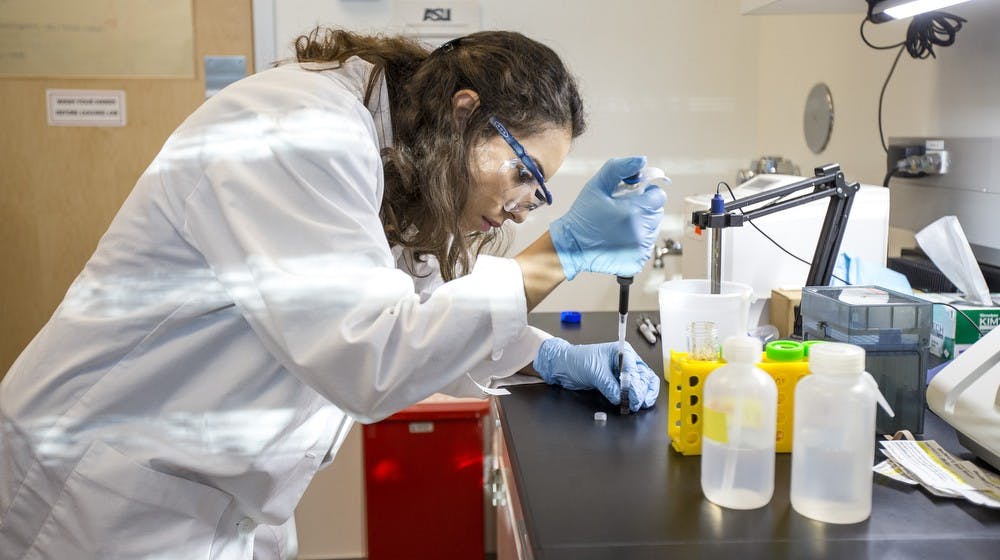Kinesiology freshman Jasmine Bosnino said she couldn't work her freshman year because of time constraints, but still wanted extra cash. When she heard she could make a buck by selling her poop, she jumped at the opportunity.
"It was going down the toilet anyway, why not make some money from it," Bosnino. "So far it has been a really cool and interesting experience."
DevilWASTE and DevilSPARC are ASU-centric studies conducted by University researchers that aim to examine the changes in student's internal makeup and health. DevilWASTE is a sub-study of DevilSPARC.
Students involved in DevilSPARC fill out surveys and are measured intermittently throughout the school year and students involved in DevilWASTE submit their feces for examination.
A participant of DevilWASTE can earn up to $60 and a participant of DevilSPARC can earn up to $110 worth of Amazon gift cards along with DevilSPARC related swag such as poop-themed T-shirts, water bottles and lanyards.
Meg Bruening, the principal investigator of DevilSPARC, who spearheaded the project said the program is funded by the National Institute of Health and is a five-year study.
Until now, researchers have only conducted tests and pilot programs — this is the first year DevilSPARC is officially launching.
Participants of DevilSPARC are measured in height, weight, waist and hip circumference three times a year in order to track factors that relate to students nutritional and physical health.
"We're trying to understand how and why students make changes in their health behaviors during their freshman year," Bruening said.
Through out the Tempe, Downtown and West campuses, 1,100 students participated and 30 undergraduate students helped with the research for the study.
DevilWASTE operates under the auspices of DevilSPARC, but DevilWASTE's Principal Investigator Corrie Whisner said both studies work hand-in-hand in most things.
"Nobody has ever looked at the microbiome of college students and how it is something that will change over time," Whisner said. "We kind of wanted to understand the 'freshman 15' concept in the metabolism."
She said the ultimate goal for the DevilWASTE project is to put the fecal material through high-throughput sequencing, which is the gold standard for microbe testing in which the researcher is able to see every microbe present in a sample.
In order to collect the fecal material, participants must defecate into a plastic container held by a nylon pouch dubbed by participants as “the lunchbox.”
Students then text a research team member on call who will meet the student and pick up the sample.
The test period for participants ends with the school year and each participant will be able to see a breakdown of the microbial makeup of their feces.
“It’s just to kind of give a feeling to what is going on inside your body and what microbes are there," Whisner said. "It’s not meant to be diagnostic or anything."
Reach the reporter at Garrison.Murphy@asu.edu or follow @Garrison_Murphy on Twitter.
Like The State Press on Facebook and follow @statepress on Twitter.




